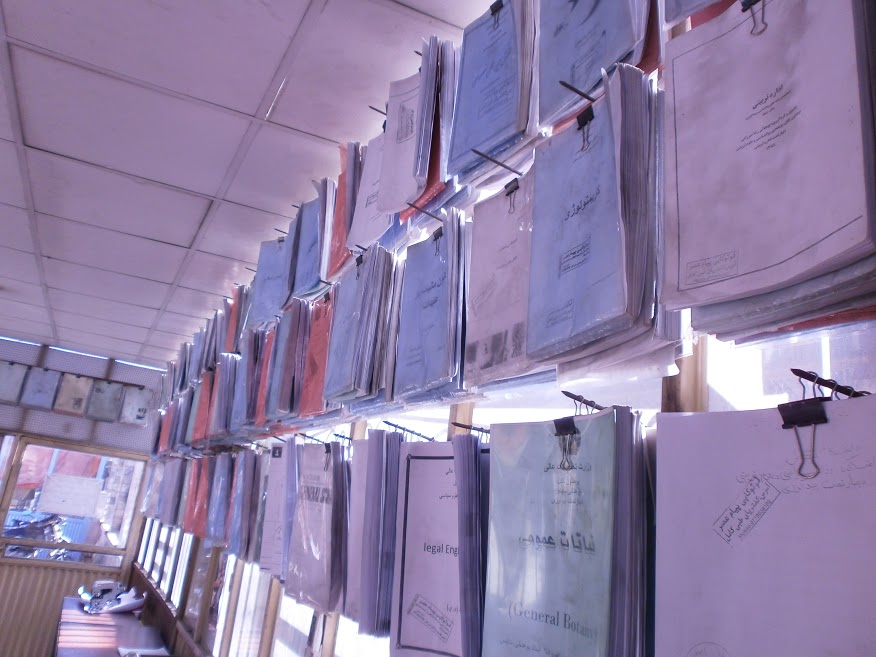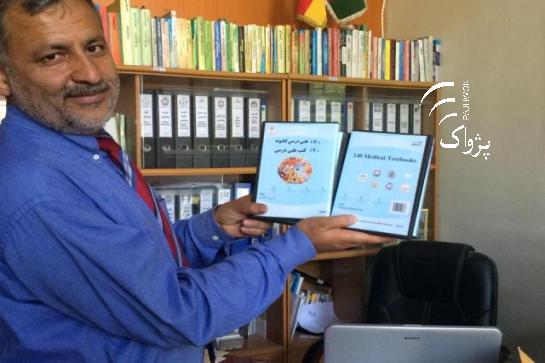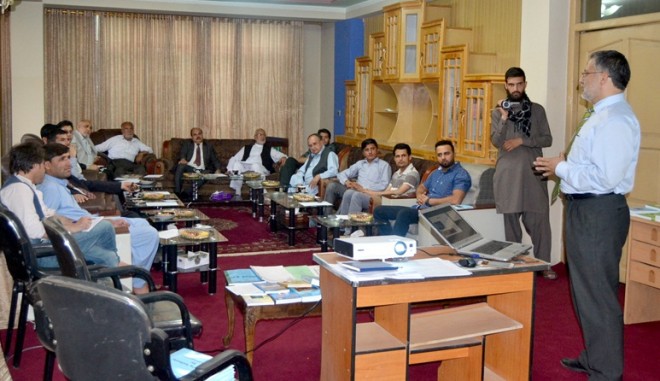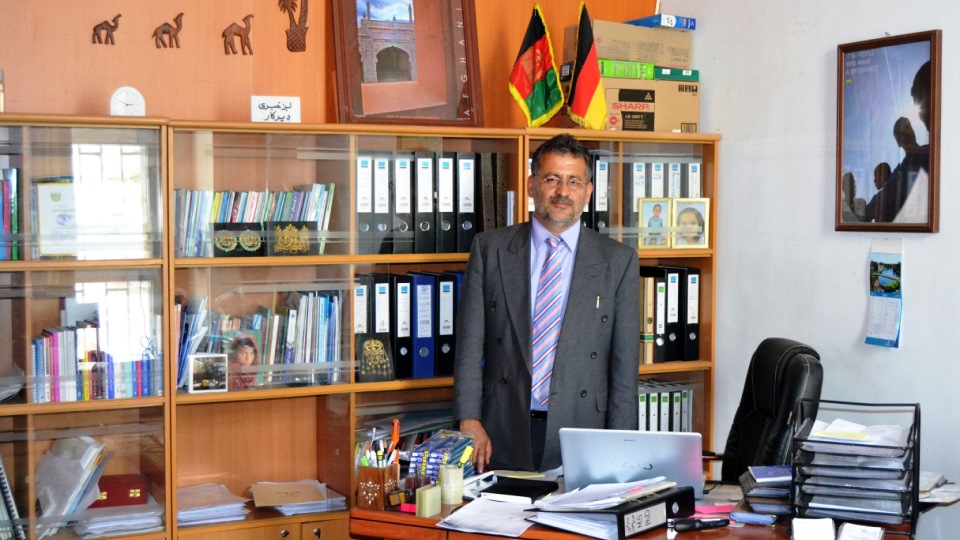I s it believable that most Afghan students do not have textbooks and use only learning materials written ten to twenty years ago (papers or translated notes by instructors from a book on an issue or subject). Well, I would not have believed it if I had not seen the situation in Kabul and some other provinces which makes one sad. Students take twenty or thirty pages in plastic bags to their classes, memorize them by rote and then jot down on exam papers the answers from memory, and in this way they pass the exams. In contrast, students in other countries have access to a large number of books, and also they refer to libraries several times each week.
s it believable that most Afghan students do not have textbooks and use only learning materials written ten to twenty years ago (papers or translated notes by instructors from a book on an issue or subject). Well, I would not have believed it if I had not seen the situation in Kabul and some other provinces which makes one sad. Students take twenty or thirty pages in plastic bags to their classes, memorize them by rote and then jot down on exam papers the answers from memory, and in this way they pass the exams. In contrast, students in other countries have access to a large number of books, and also they refer to libraries several times each week.
Elsewhere in the world, university is considered the main center for new knowledge, technology and investigations, but unfortunately in Afghan universities (in 21th century) students use learning materials of 20th century. Nevertheless some lecturers have written, translated and published books in their fields. There work is exceptional.
In the last 13 years, no systematic work has been done for providing new standard textbooks. However, in 2014, the Ministry of Higher Education published a curriculum in several volumes covering 50 fields. That was the first positive step, but unfortunately it is not being applied in every field. As the curriculum makes the plan and framework for better teaching, books of the curriculum should be available for each taught subject in native language of the lecturers and students in order to be taught by the lecturer within the framework of the curriculum and learned by the students.
Some people suggest that the lecturers and students should use English books or the Internet. However, not all of our lecturers and students are familiar enough with English language to take full advantage of English books. Also the Internet can never be a substitute for books as books have been the best way of transferring and learning knowledge for thousands of years.
I launched an online course (2003-2005) and worked as its tutor in InWEnt gGmbH/Bonn for doctors in Asia, Africa and Latin America who had studied in Germany. That course was about HIV/AIDS in the German language, and later on it was translated into English. In such a developed country like Germany, works and investigations are still done in this area; e-learning is getting more common, but it has not been replaced with classroom learning. The majority of training in institutions still occurs in classrooms.
Although the number of users of new technology in Afghanistan is increasing year by year, the Internet cannot be accessed always because of the absence of electricity or other technical problems.
Another problem is with the language. Although teaching is possible through the Internet, learning materials should be provided in a language which is understood by the students. Then courses using these materials can be held online from other countries in order to deliver some of them to those people who are interested in them. Another issue is that learning through internet is not cheap; it costs a lot. It requires complete technical facilities such as electricity, a computer and easy access to the Internet.
In addition, learning materials should be made available, and texts should be stored in computers so that students can access them easily. Also, learning texts without charts, pictures, audio and video can be boring. Still, all over Afghanistan, there is not even one specialized and professional organization to work in this regard.
Though there are some advanced level courses of English language, they are for those who have full command of the language.
Some years ago, an online program GLP was started at Ministry of Higher Education by USAID; their experience can be followed. They spent a lot of money but were not very successful and could not however fulfil the expectations.
Elsewhere in the world, textbooks for students play the main role in studying in any field of study. Every year lecturers and authors write books in each subject and translate standard international books. The libraries of every university purchase many books in both their native language and in the English language on the basis of their students’ needs, and then offer these books to their students. Every university has a bookstore, either inside or outside the campus. Let’s do the same!
Do our universities do so? Thousands of new students every year come to universities. How many books do we provide for them? Unfortunately, there is no money allocated from the budget of the ministry for writing, translating and publishing books.
A classroom, a teacher and a book are the basic pillars of studies, so online learning can be the next one. Therefore, let’s first build the base, and then we will construct the other pillars. At the end, I would like to quote a Greek saying: “A student without book is like an unarmed soldier.”
Suggestions:
- In the budget of the ministry and in every university there should be a specific portion for writing, translating and publishing textbooks.
- National Textbooks Program should be started by Ministry of Higher Education, and it should be one of the priorities of the ministry.
- Financial facilities should be provided for this program.
- An appeal for funding should be made for this program from the USAID, DAAD, World Bank etc.
- The purpose should be that every subject in our universities should have curriculum and at least one textbook.
- The libraries of our universities and faculties look like warehouses of books instead of real libraries. This situation should be finished as soon as possible.
- Newly provided books should be introduced to the lecturers who teach them.
- At least one professional librarian should work in every library.
- Each library should have a specific budget for purchasing new books every year.
Dr Yahya Wardak, Advisor at Ministry of Higher Education, Kabul/Afghanistan 2014




